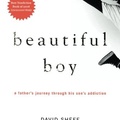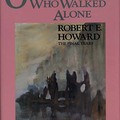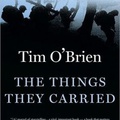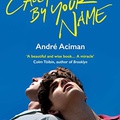Ken Follett: The Pillars of the Earth

I first came across this novel when I was a highschool student. I recall that one of my classmates was in the habit of carrying this book around and reading bits of it during recesses. I was an avid reader even back then, but still, I was overawed by the fact that someone could actually bring huge, 1000-page long novels to school. I always had something to read in my bag, but I usually brought shorter, more convenient novels to school, and I found even the look of The Pillars of the Earth impressive and somewhat intimidating.
Then a couple of years back, when the new Hungarian edition was published, there were huge stacks of the novel displayed in every single bookstore, but I was not tempted to read the novel at that time either. But one day I came across an English-language copy of the novel relatively cheaply, and suddenly I thought I might as well buy and read it.
I admit I was a bit afraid of starting to read it, as a 1000-page novel can easily mean two weeks of commitment for me and I do not like to spend that much time with a bad novel. I know it may sound stupid, but I finish almost every book I start reading, and even if it is a trashy novel, I keep hoping until the very last page that something will come up and change my opinion. Anyway, The Pillars of the Earth turned out to be quite a good read and I did not need to regret my jump into the novel. On the contrary, I could hardly wait to get home everyday, get done with my usual evening routines and continue reading, and I truly enjoyed the novel almost until the end.
I do not wish to dwell into the story (you may check Wikipedia for a detailed plot summary), so I only mention that the novel is set in 12th century England, with the story encompassing around 40 years and centering around the building of the monumental Kingsbridge cathedral. The difficulties of the building project and the mystery surrounding the hanging of the father of one of the central characters, an innocent French jongleur, Jack Shareburg, provide the outer structure for the novel, and within this structure we find a long tale full of love, wars, tragedies and various other twists and turns.
Follett employs a huge number of characters, and the story runs in several parallel lines. Still, I did not have any problems with following the events, and I was constantly entertained by the tangled relations of the characters. Needless to say, the novel makes use of a lot of good old clichés and conventional plot development methods: it is easy to guess that the villain will try a new trick to destroy the good guys in every 200 pages, and that there will be a detailed sex/torture/massacre scene in every 150 pages. And of course Follett makes sure that each bigger unit of the novel focuses on different characters and storylines, thus making the reader feel a constant urge to read just one more chapter to learn what happens to who in the following chapter.
By the way, I did not find the characters any special (mostly because they are stock black-or-white characters with no ambiguity or personality development) and did not really care for them emotionally – apart from a single character, Jack Jackson. Still, something kept me interested in everyone’s fate and I never once considered laying the book aside because of boredom.
However, the last 150-200 pages proved somewhat dissatisfactory. It is not that the end of the novel was uninteresting, I only felt as if Follett had lost some of his earlier zest and had taken up repeating himself with the last couple of twists. For me, there was one too many rape, one too many fight, one too many sex scene in the novel. And even though the cathedral is finally built after all the difficulties, accidents and intrigues, the great moment of completion does not feel that great, that cathartic after all.
I felt the same lack of catharsis in the denouement of the other structural plot element, the story of Jack Jackson’s father, the jongleur who was hanged in the prologue of the novel. Even though the jongleur’s story surfaces in the novel from time to time, keeping the reader guessing as to its true significance, and even though Jack Jackson keeps trying to piece together the truth from the many fragments of the story he learns from various sources, the revelations at the end of the novel are simply not revelatory enough. After learning the truth, even Jack seems to think so, and contemplates that as the whole affair happened forty years earlier when he was not even born, it is not worth crying over anymore.
Even though I mentioned several bad points in this review without elaborating on the good ones, I hasten to add that I find this to be a truly exciting, entertaining, easy-to-get-lost-in novel. This is a novel that can easily make you spend your workday dreaming about the hour when you can sit down to it again. Only do not expect high literature and do not start counting the faults of the novel – just enjoy being entertained.





